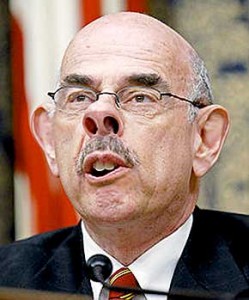The poor Iraqis have bought what our crooked politicians and theirs have impressed upon them with the aid of smart bombs and a lot of suffering: If you brave bombs and ink a ballot, you’ve struck a blow for freedom.
Freedom is the exact opposite. “Casting a vote to give someone power does not make a man free; freedom is the knowledge that even if one abstains from that ritual, nobody can exercise power over one’s life, liberty, and property.”
In Iraq, ink and blood stains mingle, just like the Jacobins like it. Elections yesterday left Iraq 40 people short—they died for democracy by improvised bombs. “Authorities in Baghdad announced a curfew,” which Americans, the public and the pols, do not consider a limitation on liberty given the monumental importance of the act of voting.
AND LISTEN TO THIS:
About 6,200 candidates from more than 80 political entities are vying for seats. [Read: a steady income from the USA] At least a quarter of the positions — 82 — are guaranteed to go to women, and eight more have been allocated for minorities. [We’ve Americanized them: they abide by quotas; yippee.] They include five set aside for Christians and one each for the Shabak, Sabaeans (Mandaeans), and Yazidis.
With so many candidates fighting to get in on the political game, no wonder “the leading political parties are expected to take until late spring or even summer to strike the bargains needed to form a coalition government.“
STRONG CONTENDERS ARE “Maliki’s State of Law alliance, former prime minister Iyad Allawi’s Iraqiya party, or the Iraq National Alliance, which includes Ahmed Chalabi and radical Shiite leader Moqtada al-Sadr. … The two main Kurdish parties and a breakaway Kurdish group are expected to be a key part of any coalition.” [McClatchy]
Chalabi, right-hand man to the neoconservatives in their push for war in 2003, is striking another blow for freedom. He heads the “Justice and Accountability Commission, tasked with purging Baathists from political life.” It has “barred hundreds of candidates from running in these elections.” Way to go.
So what do The People want from the hordes of politicians they are electing?
CNN’s most excellent Arwa Damon took the popular pulse:
“We want basic services (like water and electricity) and jobs for our husbands and children,” Umm Rasha told CNN at a campaign rally in central Baghdad.
“And someone to deal with the displaced people, the retirees, and the widows,” her sister Umm Hassan chimes in. … “We want stability … security,” said a young man who didn’t want to be named. “Even now, there are still kidnappings and bombings.”
Essentially impoverished traumatized Iraqi’s, whom one can forgive for wanting so much from the state, crave what Americans extract from their social democracy—and what Saddam provided to a greater degree than the Obama/Bush approved goons.
If the state is going to provide, it must also control.
According to the Encyclopedia Britannica:
Under the socialist Ba?th Party, the economy was dominated by the state, with strict bureaucratic controls and centralized planning. Between 1987 and 1990 the economy liberalized somewhat in an attempt to encourage private investment
Although Saddam’s judiciary was relatively independent, “The political system, however, operated with little reference to constitutional provisions, and from 1979 to 2003 President Saddam Hussein wielded virtually unlimited power.”
But before the radical G. I. Jacobins arrived in 2003, Iraq was undergoing slow, evolutionary progress, much like in Iran—:
In 1989 a committee was set up to draft a new, more democratic constitution, which would extend the power of the National Assembly and permit the formation of new political parties. A draft constitution was prepared and approved by the National Assembly in 1990 …
During Saddam HEALTH AND WELFARE were heaven on earth; it’s something Iraqis want but are now without:
Between 1958 and 1991 health care was free, welfare services were expanded, and considerable sums were invested in housing for the poor and for improvements to domestic water and electrical services. Almost all medical facilities were controlled by the government, and most physicians were (and still are) employed by the Ministry of Health. Shortages of medical personnel were felt only in rural areas. Cities and towns had good hospitals, and clinics and dispensaries served most rural areas. Still, Iraq had a high incidence of infectious diseases such as malaria and typhoid, caused by rural water supplies contaminated largely by periodic flooding. Substantial progress, however, was made in controlling malaria. … After 2003 the health care system relied heavily on donations from abroad and the efforts of international aid organizations.
What do you know? Saddam’s socialist Ba’ath regime had a little more than K to 12. Darn dem Arabs:
Britannica again: “The Ministry of Education and the Ministry of Higher Education and Scientific Research have been responsible for the rapid expansion of education since the 1958 revolution. The number of qualified scientists, administrators, technicians, and skilled workers in Iraq traditionally has been among the highest in the Middle East. Education at all levels is funded by the state.”
* Iraq. (2008). Encyclopædia Britannica. Deluxe Edition. Chicago: Encyclopædia Britannica.

